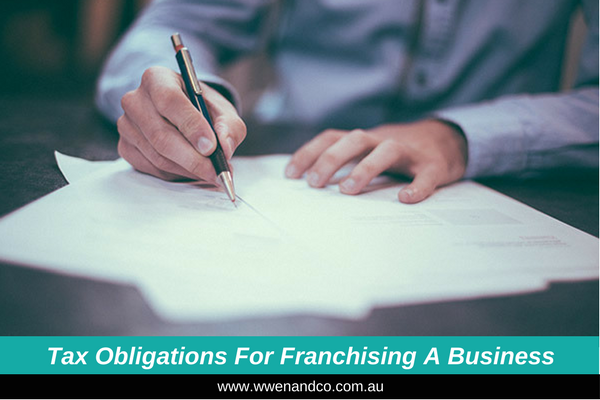Franchisees need to know how much tax to pay
Why you need to know your tax obligations for a franchised business
The Australian Competition & Consumer Commission (ACCC) is the government body responsible for enforcing the Franchising Code of Conduct, and if you or someone you know are considering entering into a franchise arrangement, this will probably be a good starting point to get an idea what to expect.
It imposes strict obligations on franchisors to make sure that franchise agreements are fair. Use the search tool on the ACCC’s website to find the code.
Franchisees and franchisors to act in good faith with each other
It is a requirement that both franchisees and franchisors act in good faith in all their dealings with one another. Another significant point that should be kept in mind is that penalties for failure to comply can be significant.
However, if you’ve got a plan and are determined to forge ahead, it is also good to know that from a tax point of view, starting and running a franchise business is broadly the same as starting and running most other small businesses.
There are, however, some additional considerations that need to be faced in that there are different tax treatments for franchise-specific payments and transactions between franchisee and franchisor.
Are you a franchisee or a franchisor?
The franchisor is the person who grants the right to use a business under some brand name or trademark, and the right to manufacture and distribute their products or services. The person who receives these rights is known as the franchisee.
The franchisor and each franchisee need to have separate Australian business numbers (ABNs).
Franchise fee deductions
The initial franchise fee or transfer fee that is paid to the franchisor forms part of the cost base for your franchise business as a capital asset. As these fees are capitally invested in the business, you as the franchisee do not deduct the fee as a business expense from your annual income tax.
Franchise renewal fees
Depending on the circumstances, franchise renewal fees may form part of a franchisee’s cost base.
Any franchise renewal fees not included in the cost base may be deductible as a business expense and subject to the prepayment rules. Generally, you can deduct the fees paid to the franchisor for ongoing training as a business expense.
The prepayment rules cover expenses incurred in a current income year under an agreement for something to be done, in whole or in part, in a later income year. This alters the timing of a deduction for certain prepaid expenses that would ordinarily be immediately deductible in full in the year they were incurred.
The subsequent timing of such a deduction can generally be made over an “eligible service period”, which in most cases means the period during which the agreement is in force.
GST
Payments made to the franchisor will generally also include a goods and services tax (GST) component, as in most cases the franchisor will be GST registered.
If you as the franchisee are also GST registered, you will be able to claim a GST credit from the ATO for the GST amount included in:
- Initial franchise fees
- Franchise renewal fees
- Franchise service fees or royalties
- Advertising fees
- Transfer fees
- Training fees
Royalties or interest payments
An agreement to purchase a franchise often includes ongoing payments of royalties, interest payments or levies to the franchisor. These payments typically cover head office expenses, such as administration, advertising and technical support.
Unlike the initial upfront fee, when you work out your annual income tax liability you are generally able to deduct payments of royalties, interest payments and levies in the year these are incurred, as they are and will be a continuing expense in carrying on the business.
Ending a franchise agreement
If you either transfer a franchise to another party or terminate your franchise agreement, you may need to alert us in case there are both capital gains tax (CGT) and GST consequences.
When you transfer or terminate a franchise, the initial franchise fee or transfer fee that is included in the business’s cost base may be relevant in working out the net capital gain (if any) to include in a subsequent tax return.


